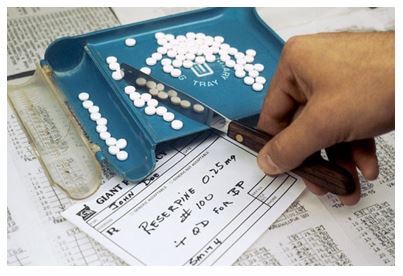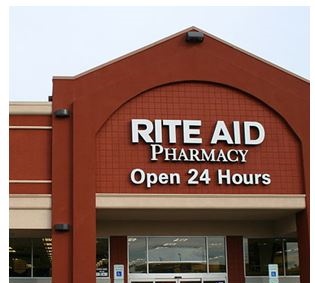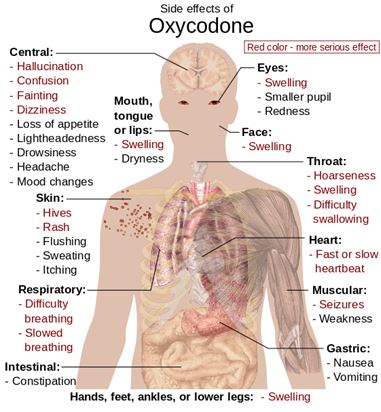 They are not slackers sitting at a desk or by a phone all day waiting for the next customer to come calling. Pharmacy technicians are constantly moving and on their feet. They are of the most physically active workers and just happen to be graced with one of the cleanest work settings possible. On the clock at all times, sometimes even throughout every hour in a day, pharmacy technicians couldn’t have a better setting for active work and extensive hours.
They are not slackers sitting at a desk or by a phone all day waiting for the next customer to come calling. Pharmacy technicians are constantly moving and on their feet. They are of the most physically active workers and just happen to be graced with one of the cleanest work settings possible. On the clock at all times, sometimes even throughout every hour in a day, pharmacy technicians couldn’t have a better setting for active work and extensive hours.
Like doctor’s offices, pharmacies are treated as laboratories and kept as clean and organized as possible. They are also well-lit and equipped with some of the best ventilation systems on the market. Possibly the most important thing a pharmacy technician could need, good lighting is essential for counting pills, measuring amounts and reading labels. The numerous, working air vents are needed for keeping the environment safe for hours on end despite the use of various smelly, chemicals.
Pharmacy technicians are exposed to different medications more often than any other pharmacy worker. They are the ones responsible for preparing and distributing medications for daily use. This is usually considered routine work. Every pharmacy technician, however, has felt the pressure and stress of impatient customers during busy hours.
Being the worker with the busiest, but still routine, schedule, it is not uncommon to find pharmacy technicians on the clock whenever pharmacy doors are open. This means working a lot of night, weekend and even early morning shifts in addition to being on the clock during normal nine-to-five working hours.
Daily Tasks
Within a pharmacy’s internal structure, pharmacy technicians play a very pivotal role that is different from any other worker. Pharmacy technicians, not pharmacists, construct a prescription for use. They handle every single detail between receiving the initial prescription request for a medication to pricing it for purchase.
Once a prescription has been requested, a technician must first check the dosage and type of medication for accuracy. They then prepare the medication. Working with a broad range of chemicals, technicians find themselves counting, pouring, measuring or mixing different medications multiple times a day.
 Technicians are also in charge of a prescriptions packaging and labeling. They choose which container is used for what and whether something can or cannot be taken with food. A pharmacist’s only required staff duties are to oversee and offer advice. If something goes missing, pharmacy technicians are usually the first to be suspected. Re-stocking and taking inventory of medications is in their job description. No pharmacist would ever be expected to lift a 40 pound package of different pills.
Technicians are also in charge of a prescriptions packaging and labeling. They choose which container is used for what and whether something can or cannot be taken with food. A pharmacist’s only required staff duties are to oversee and offer advice. If something goes missing, pharmacy technicians are usually the first to be suspected. Re-stocking and taking inventory of medications is in their job description. No pharmacist would ever be expected to lift a 40 pound package of different pills.
Pharmacy technicians answer to the on-staff pharmacist. They also answer to customers. Offering support and a smiling face to tired, sick, moody and suffering customers is not an easy job to do repetitively throughout a day. Pharmacy technicians do this and a lot more. They are in charge of creating and maintaining individual patient files.
Salary & Job Outlook
In the fastest growing industry available, pharmacy technicians are not suffering from a shortage of job opportunities. In fact, their employment rate is steady growing and only projected to increase over the next ten years or more. With a growing older population and pharmacies extending their hours of operation, pharmacy technicians offer a cost-effective solution to steadily heavier workloads.
 Pharmacy technicians can be employed for much less than a pharmacist, making them a more desirable hire. Consistently gaining more and more customers, pharmacies have more and more prescriptions to manage and distribute. The pharmacy business is also not lacking for competition. Pharmacy against pharmacy, which has what or can get it the fastest, often, determines where a customer will continue their business. In the battle for best customer service, there is no shortage of part or full-time positions available for pharmacy technicians.
Pharmacy technicians can be employed for much less than a pharmacist, making them a more desirable hire. Consistently gaining more and more customers, pharmacies have more and more prescriptions to manage and distribute. The pharmacy business is also not lacking for competition. Pharmacy against pharmacy, which has what or can get it the fastest, often, determines where a customer will continue their business. In the battle for best customer service, there is no shortage of part or full-time positions available for pharmacy technicians.
There are also several benefits to working in a medical, laboratory setting. Many of which are used as hiring incentives. Equally as important as a good salary, these businesses often offer good benefits. More than just overtime compensation for working holiday hours, pharmacy technicians are often promised paid time off for vacation or sick leave. Medical insurance and retirement plans are even considered a standard for technician positions.
A technician’s salary is determined by their location and employer. However, on the national level, technicians receive a median of 28,400 dollars a year or 13 dollars and 65 cents per hour. Technicians with limited experience, working in a rural setting are likely to earn the least. Technicians with on-the-job experience and certification, working in a populated area are likely to make the most in a year.
Skills & Training
The characteristics of a desirable pharmacy technician correspond with the ones associated with their work environment. They are expected to be honest, organized and responsible. They must also demonstrate an attention for detail. In addition to being upstanding and slightly obsessive compulsive, successful pharmacy technicians are good communicators.
As mentioned previously, pharmacy technicians play a pivotal role in a pharmacy’s daily operations. They must function as a team member working alongside others toward a common goal. They must be able to take direction and be self-directed. This is important since most technicians are trained on-the-job. However, the most desirable technicians have completed some sort of formal training program, such as an educational award or professional certification.

Institutions of higher education provide technicians with formal training that takes place in both a classroom and laboratory. The course structure for a pharmacy technician includes medical terminology, record keeping, mathematics, and law. It is designed to teach students to recognize a medicine’s use, dosage and action by name.
Instead of an academic certificate or degree, many pharmacy technicians opt for a professional certification. This certification can be used in place of a degree as a measure of ability. It can also be used alongside a degree as an additional qualification. The National Pharmacy Technician Certification Examination (distributed by the Pharmacy Technician Certification Board) is the most common standardized test used by pharmacy technicians and accepted by pharmacies. Testing students in three distinct areas, the exam evaluates a student’s ability to assist pharmacist, distribute medicine and operate pharmacy equipment.
